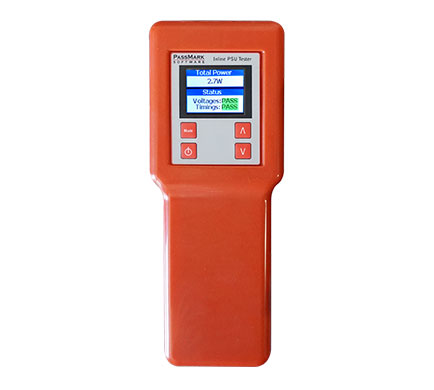
Inline PSU Tester
Diagnose and troubleshoot your desktop PC power supply.
- The most comprehensive PSU tester on the market
- Check power supply voltages are within the approved limits.
- Record the minimum and maximum of voltage and current for each rail.
- Measure the exact power drawn from each rail.
- Measure the total power drawn from the power supply.
- Test for ripple on main voltage rails
- Measure and check Power-on Time (T1), Rise Time (T2), PWR_OK delay (T3), and Power-down warning (T6) and check them against the specification.
- Measure the minimum slew rate on main voltage rails during power up
- Measure the turn-on slope of main voltage rails is positive during power up
- Check power sequencing
Why test your PSU?
A failing power supply can often be at the root of problems you might not expect, like random lockups, spontaneous reboots, and even some serious error messages
The PassMark PSU Tester is designed to quickly and comprehensively test a PC power supply.
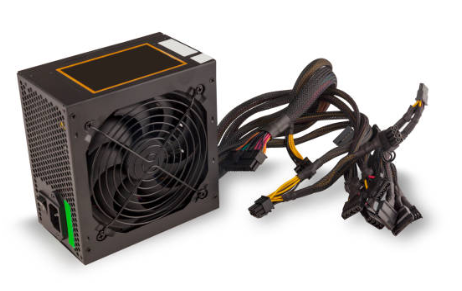
Five operating modes
Inline mode
The PSU tester can be used inline with a connected Power Supply and full load.

Inline mode & Monitoring
A PC can be connected by USB to monitor the PSU tester in Inline mode.
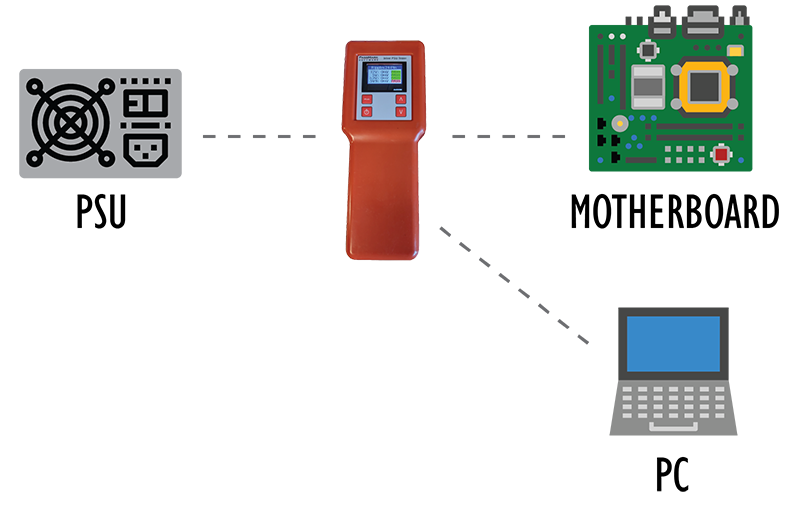
Standalone mode
The PSU tester can be used in standalone mode.
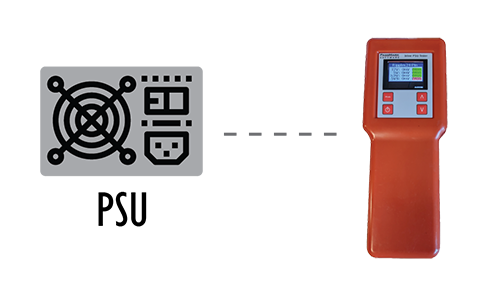
Standalone mode & Monitoring
A PC can be connected by USB to monitor the PSU tester in Standalone mode.
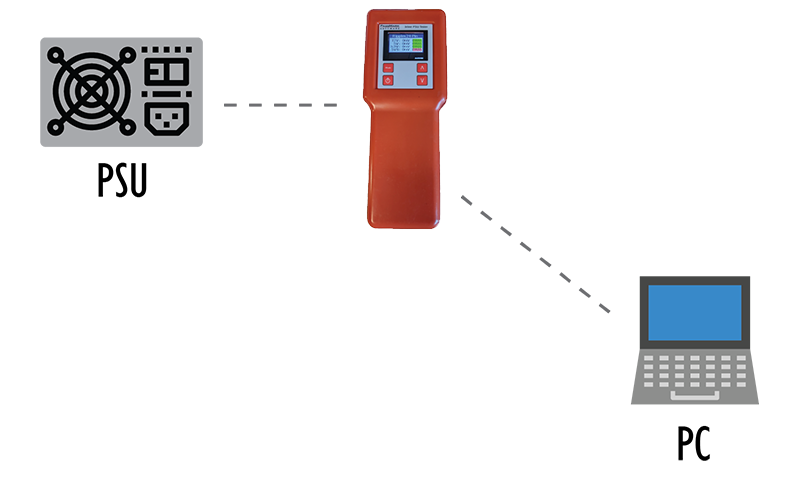
Multiple testers
Multiple units can be used simultaneously to test systems with up to 3 GPUs or 2 CPUs. These can be monitored from one instance of the software.
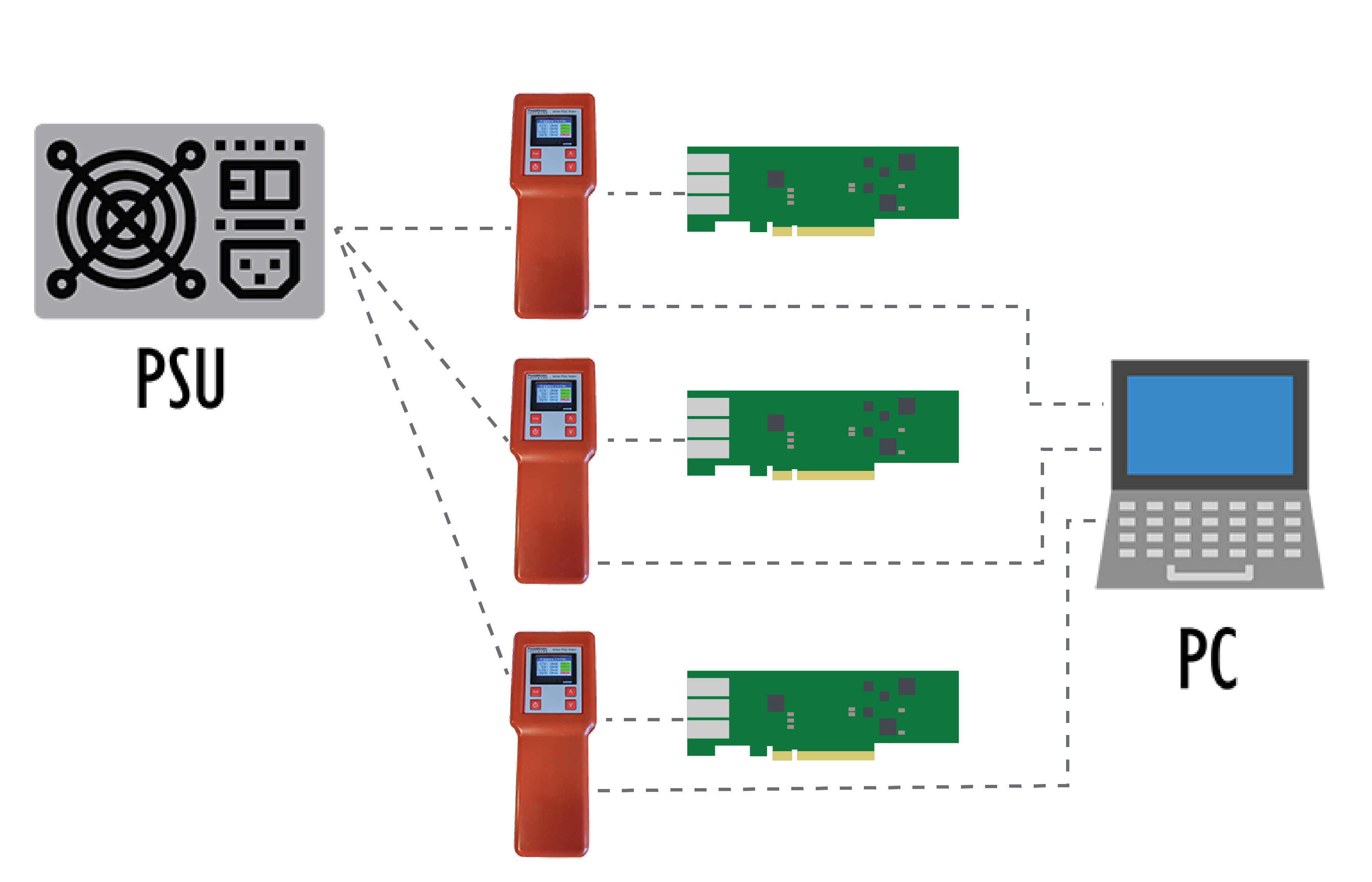
Includes monitoring software for Windows
Connect the PSU Tester to your PC via the USB connection and you can monitor the PSU statistics, including voltage, current, power, ripple and timing for each voltage rail.
Measurements are clearly displayed with Green background when the value is within acceptable range, and Red background when the value is outside the valid range.
Up to three testers can be monitored from one instance of the software, and all data can be exported to a text file report.
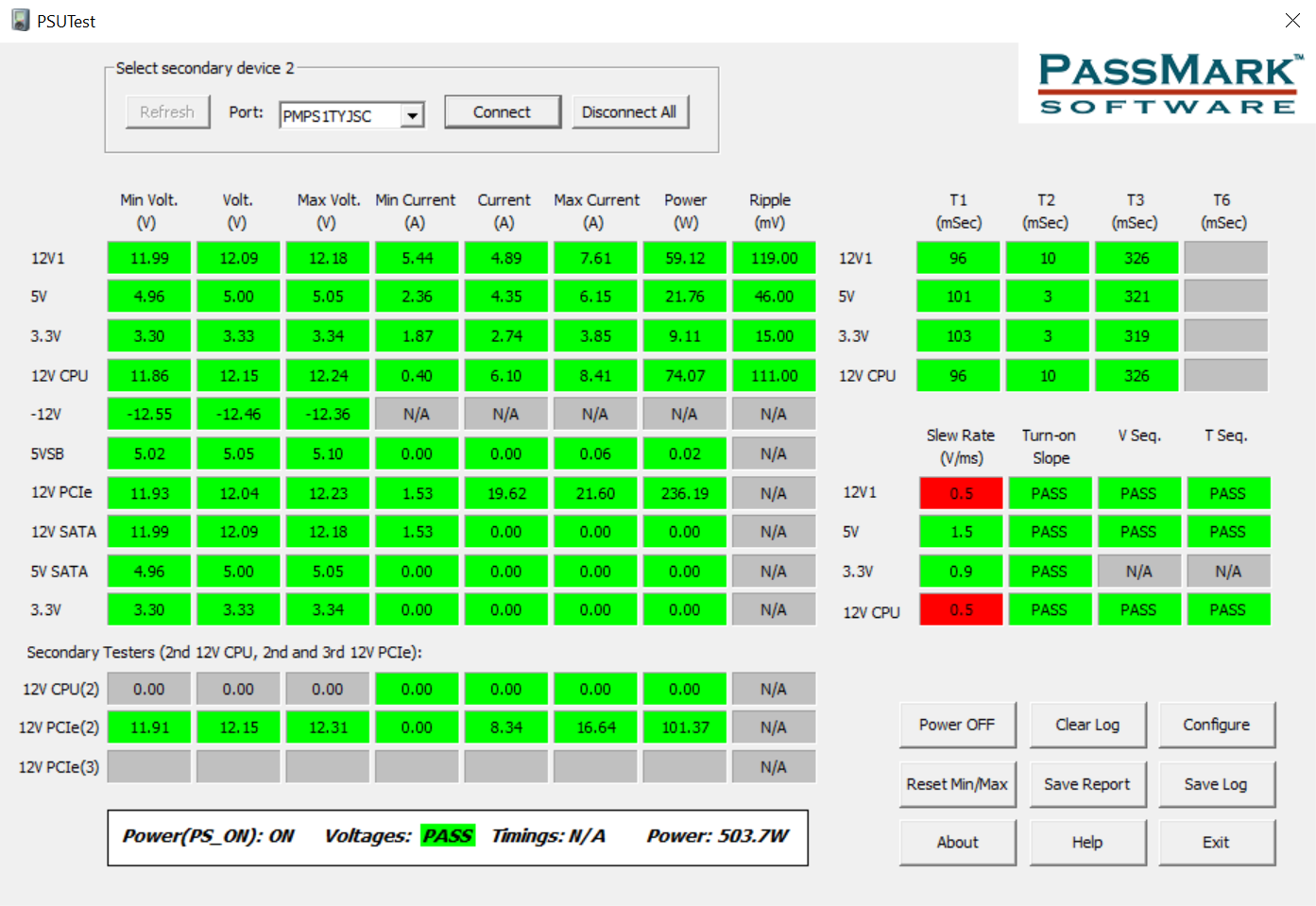
Most comprehensive PSU Tester on the market
PassMark’s Inline PSU Tester is the most extensive and complete diagnostic utility for PC ATX Power Supply Units on the market. Here’s how it compares to other PSU testers.
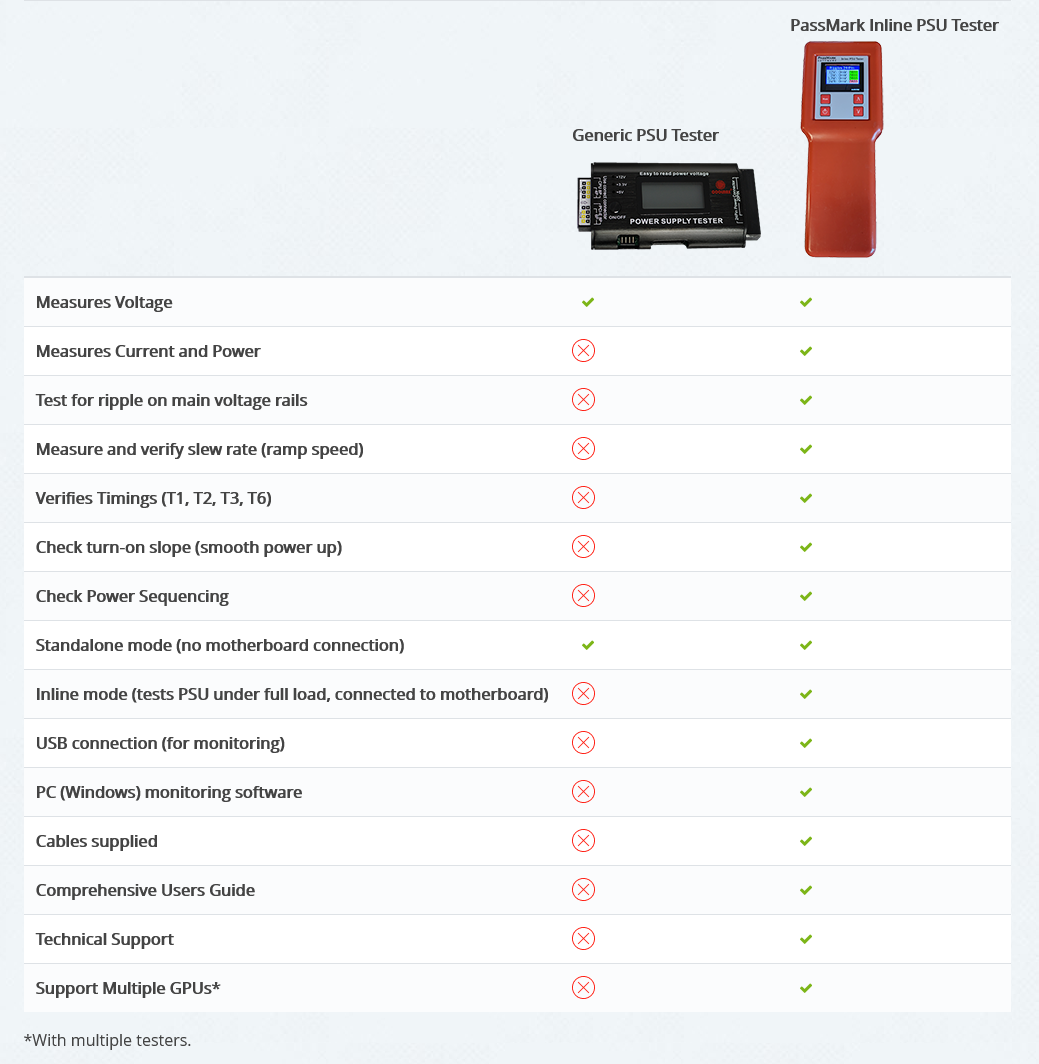
Product Gallery
Protective Case
Shipped in a hard, padded, protective case.
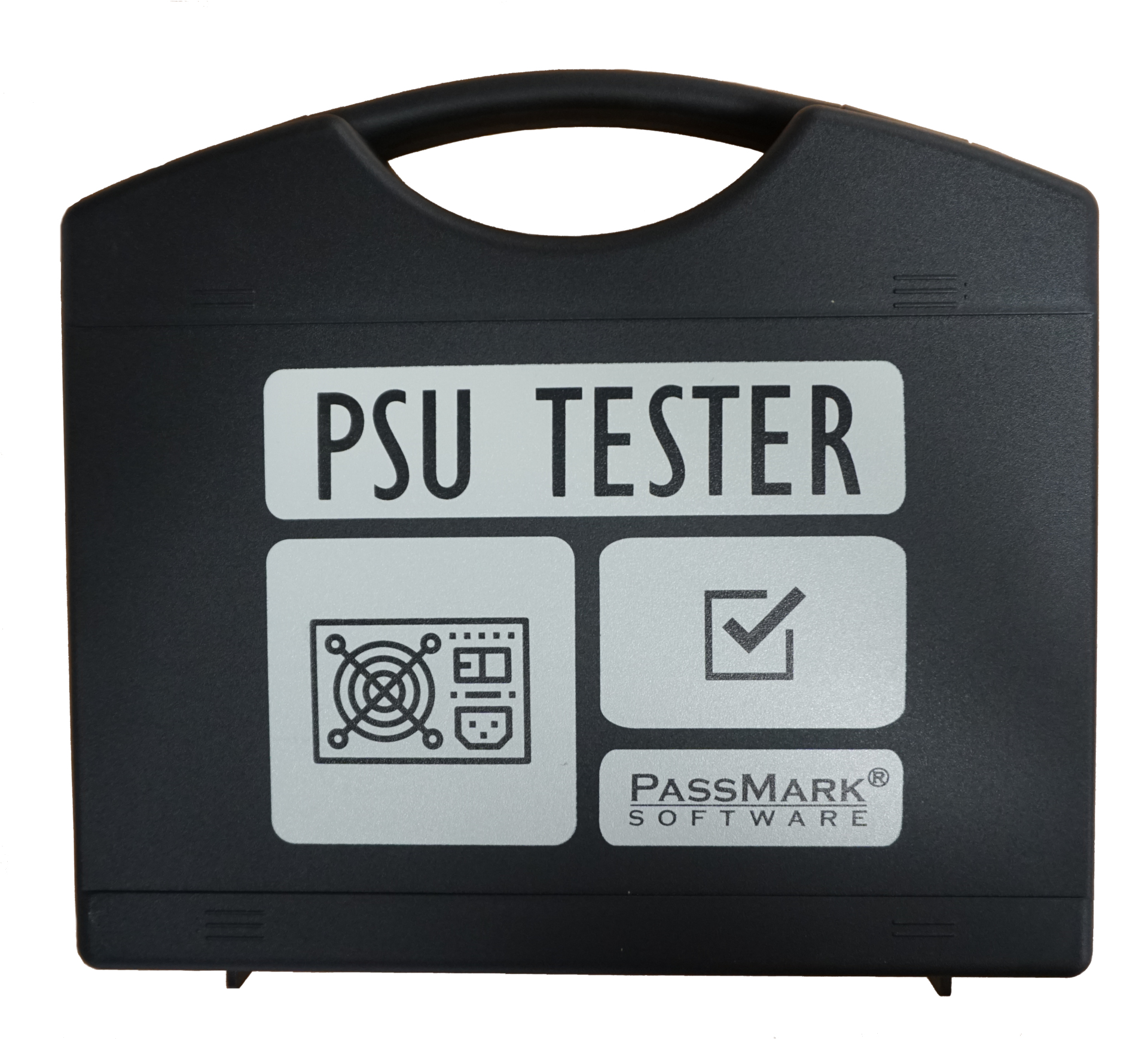
Included Contents
The PSU tester is stored in the case in a custom foam cutout.
Comes with 6 power cables (8 pin PCIe, PCIe splitter cable for testing systems with multiple GPUs, 8 pin CPU, CPU extension cable, ATX 24 pin, SATA) and a USB cable for monitoring
User guide is available online for download
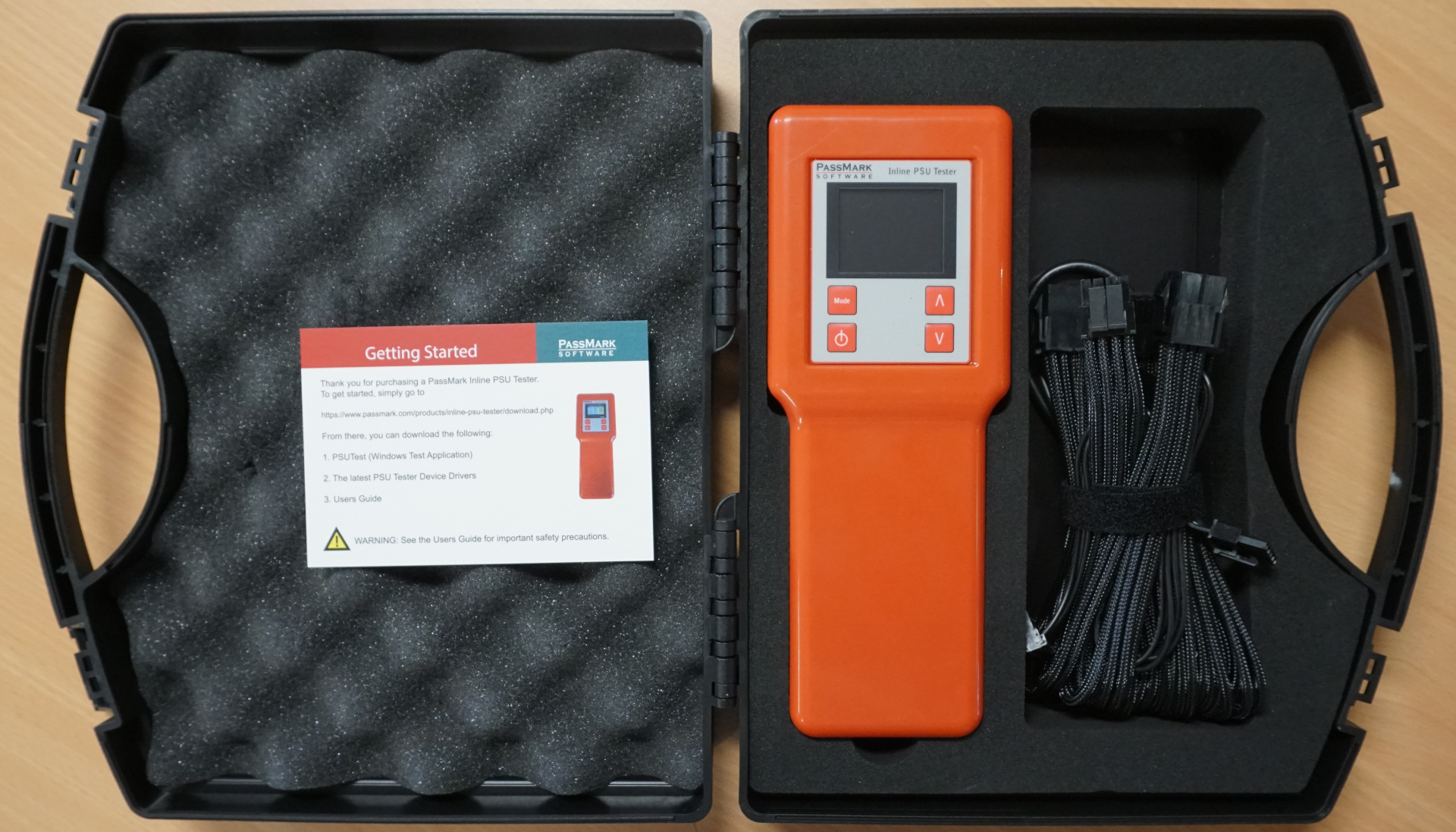
PSU Tester Connectors and Cables
Can be operated in inline or standalone modes.
Connect the PSU Tester to your PC via the USB connection (cable included) to monitor PSU statistics and to export data to a report.

Information Screens
The different information screens can be displayed by scrolling using the buttons on the unit.
Check power supply voltages are within the approved limits, measure the exact power drawn from each rail and the total power drawn from the power supply.
Test for ripple on main voltage rails, measure the minimum slew rate on main voltage rails during power up
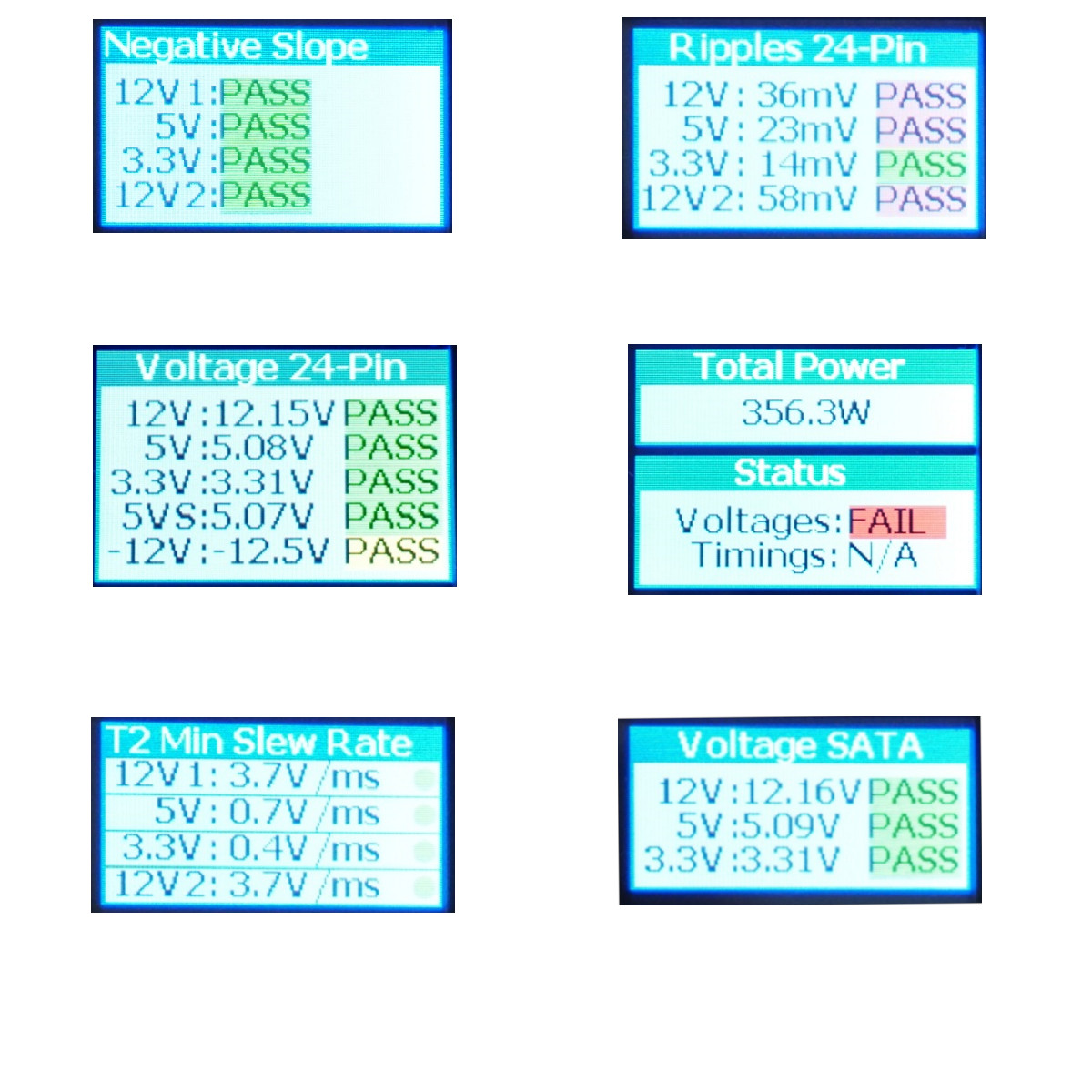
PSU Tester in Action
An example of the PSU Tester in action while running in inline mode between the motherboard and the power supply.
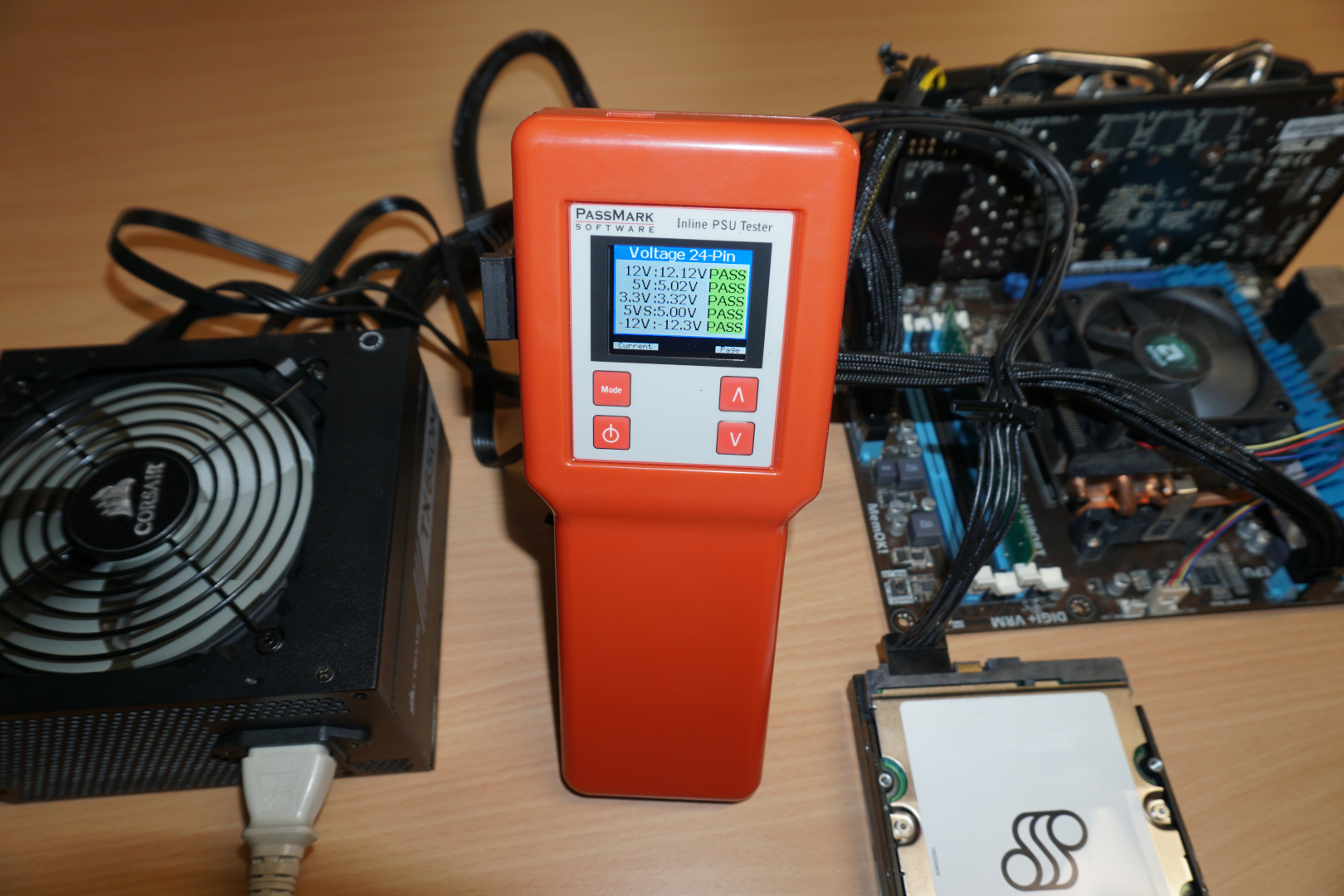
Inline PSU Tester Intro Video
This is a quick introductory video on our Inline PSU Tester. Understand how you can troubleshoot and diagnose your PSU quickly, safely and with confidence.
Quickly check if supply voltages are within the approved limits, measure and check timings such as Power-On Time and Power_OK Delay and test ‘inline’ while connected to your motherboard.
Product Demo Video
This is a full overview of our Inline PSU Tester. Understand our latest hardware product, exactly what the tester has been designed to test, and see a demo of the video across the different usage configurations.
We cover topics such as product features, standalone and inline configuration demonstrations plus an insight into the monitoring software.
Safety Precautions
- Safety should be your primary concern during a power supply test with a PSU tester
- Remove anything conductive from your hands (e.g. metal rings, watches, or bracelets) before testing a PSU or working inside your computer.
- Only use the original cables that comes with the tester. The PCIe cable that comes with the tester, is not a standard cable and is custom-made for the tester. Using other cables could lead to short circuit between the voltage rails.
- Make sure all the cables are fully inserted. A loose connection introduces more series resistance which can lead to melting of the wires under high load.
- Always have someone monitor the testing in case the device under test suddenly fails. Do not start a test and walk away.
- See smoke coming from the power supply or inside the case or smell a burning or solder scent, unplug the computer from the wall. Do not touch the PSU or the PSU Tester in such circumstances.
- If the PSU Tester is inline (connected to both power supply and motherboard), do not power up using the keypad. Instead, use the PC power button.



